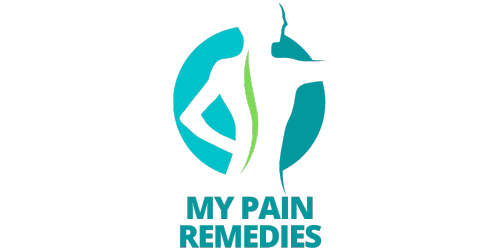If you’re in Mobile, Alabama and in need of effective pain management, look no further than the comprehensive services offered by Pain Management Mobile Al. Whether you’re dealing with chronic pain, acute injuries, or post-surgical discomfort, their team of experienced professionals is dedicated to providing personalized care and finding solutions that work for you. With a focus on both traditional and alternative therapies, Pain Management Mobile Al aims to help you find relief and improve your quality of life. Say goodbye to unnecessary suffering and regain control over your well-being with their expert guidance and support.

What is Pain Management?
Definition of Pain Management
Pain management refers to the medical specialty that focuses on reducing and alleviating pain, improving the quality of life for individuals who are experiencing acute or chronic pain. The goal of pain management is to address the physical, emotional, and social aspects of pain to provide holistic care and improve overall well-being.
Importance of Pain Management
Effective pain management is crucial for individuals as it can significantly impact their daily lives, productivity, and overall happiness. Chronic pain, in particular, can lead to physical and mental distress, making it challenging to perform routine activities and enjoy life. By seeking appropriate pain management strategies, individuals can regain control over their pain, enhance their quality of life, and prevent the development of other health complications.
Common Types of Pain
Pain can manifest in various forms and intensities, affecting different areas of the body. Some of the most common types of pain include:
- Musculoskeletal Pain: Arising from the bones, muscles, and joints, such as back pain or arthritis.
- Neuropathic Pain: Caused by damage or dysfunction of the nervous system, resulting in conditions like sciatica or diabetic neuropathy.
- Headaches and Migraines: Recurring pain in the head, which can be debilitating and severely impact daily activities.
- Visceral Pain: Originating from the internal organs, commonly associated with conditions like gastritis or kidney stones.
- Cancer Pain: Arising from cancerous tumors or the side effects of cancer treatments.
Finding a Pain Management Specialist in Mobile, AL
Importance of Seeking Professional Help
When it comes to managing pain effectively, seeking professional help from a specialized pain management specialist is crucial. These professionals have extensive knowledge and experience in diagnosing and treating various conditions and can develop personalized treatment plans tailored to each patient’s specific needs. They are skilled in employing a multidisciplinary approach to pain management, ensuring a comprehensive and holistic approach to treatment.
Researching and Choosing the Right Specialist
To find a reliable pain management specialist in Mobile, AL, it is important to conduct thorough research. Look for specialists who are board-certified, have relevant experience, and positive patient reviews. Take into consideration factors such as their expertise in treating specific conditions, the range of treatment options they offer, and their accessibility. It may also be helpful to seek recommendations from your primary care physician or friends and family who have had positive experiences with pain management specialists.
Referral from Primary Care Physician
If you are experiencing chronic pain, it is advisable to discuss your symptoms with your primary care physician. They can assess your condition, provide initial treatment, and determine if a referral to a pain management specialist is necessary. Your primary care physician can offer valuable insights into trusted pain management specialists in the community and ensure a smooth transition of care between healthcare providers.
Different Approaches to Pain Management
Medical Interventions
Medical interventions for pain management involve procedures that aim to diagnose, treat, or alleviate pain symptoms. These interventions can include nerve blocks, epidural injections, radiofrequency ablation, or spinal cord stimulation. These procedures are typically performed by pain management specialists under strict medical guidelines and often provide targeted relief for specific pain conditions.
Pharmacological Treatments
Pharmacological treatments involve the use of medications to manage pain and alleviate symptoms. These medications can range from over-the-counter pain relievers like acetaminophen or nonsteroidal anti-inflammatory drugs (NSAIDs) to prescription medications such as opioids, muscle relaxants, or antidepressants. The selection of pharmacological treatments depends on the type and severity of the pain, as well as individual patient factors such as medical history and potential drug interactions.
Physical Therapy
Physical therapy plays a significant role in pain management, particularly for musculoskeletal conditions. Physical therapists utilize various techniques and exercises to improve strength, flexibility, and function in affected areas. They also teach patients proper body mechanics and posture to prevent further pain and injury. Physical therapy may include manual therapy, therapeutic exercises, heat or cold therapy, and electrical stimulation to relieve pain and improve overall physical well-being.
Alternative and Complementary Therapies
In addition to conventional medical approaches, alternative and complementary therapies can be beneficial in managing pain and improving overall well-being. These therapies may include acupuncture, chiropractic care, massage therapy, aromatherapy, and mind-body practices like meditation or yoga. While the scientific evidence for these therapies may vary, many individuals report significant pain relief and enhanced quality of life when incorporating these approaches into their pain management plans.
Common Pain Conditions Treated in Mobile, AL
Back Pain
Back pain is one of the most common reasons individuals seek pain management in Mobile, AL. It can be caused by various factors, including poor posture, muscle strain, herniated discs, or degenerative conditions like osteoarthritis. Pain management specialists can provide a comprehensive evaluation to determine the underlying cause of back pain and develop a customized treatment plan, which may include physical therapy, medication management, and targeted interventions.
Arthritis
Arthritis refers to inflammation of one or more joints, leading to pain, stiffness, and reduced mobility. Pain management specialists in Mobile, AL are well-versed in treating different forms of arthritis, such as osteoarthritis and rheumatoid arthritis. Treatment options may include a combination of medications, physical therapy, joint injections, and lifestyle modifications to alleviate pain and improve joint function.
Migraines
Migraines are severe headaches often accompanied by other symptoms such as nausea, light sensitivity, and visual disturbances. Pain management specialists in Mobile, AL can help individuals develop personalized migraine management plans. These plans may involve medications specifically designed to prevent or treat migraines, lifestyle modifications, and behavioral interventions to identify and avoid triggers.
Fibromyalgia
Fibromyalgia is a chronic pain condition characterized by widespread musculoskeletal pain, fatigue, and sleep disturbances. Pain management specialists in Mobile, AL often take a multidisciplinary approach to fibromyalgia management, combining pharmacological treatments, physical therapy, and complementary therapies such as acupuncture or massage to address the complex nature of this condition.
Cancer Pain
Cancer pain can arise from tumors pressing on nerves, as well as from the side effects of cancer treatments. Pain management specialists in Mobile, AL work collaboratively with oncologists and other members of the healthcare team to provide comprehensive care for individuals with cancer pain. Treatment options may include medications, interventional procedures, palliative care, and supportive therapies to manage pain and improve quality of life throughout the cancer journey.

Diagnostic Tools and Techniques
Medical History and Physical Examination
The initial step in pain management involves a comprehensive medical history and physical examination. Pain management specialists will inquire about the location, intensity, and duration of the pain, as well as any aggravating or relieving factors. They will also assess the patient’s medical history, current medications, and previous treatments. A thorough physical examination helps identify any visible signs of pain or underlying conditions and guides further diagnostic testing.
Imaging Tests
Imaging tests such as X-rays, magnetic resonance imaging (MRI), or computed tomography (CT) scans may be ordered to visualize internal body structures and identify potential sources of pain, such as bone fractures, degenerative changes, or tumors. These diagnostic tools provide valuable insights into the underlying causes of pain and help guide appropriate treatment plans.
Laboratory Tests
Laboratory tests, including blood work and urine analysis, may be conducted to identify any underlying medical conditions that could be contributing to the pain. These tests can help detect inflammation, infections, or biochemical imbalances that may require specific treatment approaches.
Pain Assessment Scales
Pain management specialists often employ standardized pain assessment scales to evaluate the intensity and impact of pain on an individual’s daily life. Common scales include the Numeric Rating Scale (NRS), Visual Analog Scale (VAS), or the Faces Pain Scale-Revised (FPS-R). These scales help in quantifying pain levels and monitoring the effectiveness of various pain management interventions over time.
Developing a Personalized Pain Management Plan
Understanding the Patient’s Needs and Goals
To develop an effective pain management plan, it is essential for pain management specialists to understand the patient’s unique needs, goals, and preferences. This involves open and honest communication between the patient and the healthcare team, where the individual can express their treatment expectations and desired outcomes. By actively involving patients in decision-making, pain management plans can be tailored to their specific needs and improve treatment adherence.
Involvement of Multidisciplinary Team
Pain management often requires a multidisciplinary approach, involving collaboration between pain management specialists, primary care physicians, physical therapists, psychologists, and other healthcare professionals. This team-based approach ensures that all aspects of pain management, including physical, psychological, and social factors, are adequately addressed. The expertise of the multidisciplinary team can provide comprehensive care, targeting various aspects of pain and enhancing treatment outcomes.
Tailoring Treatment Options
Every individual’s pain experience is unique, and therefore, treatment options should be tailored to meet their specific needs. A combination of approaches may be recommended, including medication management, physical therapy, interventional procedures, and psychological interventions such as cognitive-behavioral therapy or relaxation techniques. By customizing treatment options, pain management specialists can optimize pain relief and improve overall well-being.
Setting Realistic Expectations
Pain management is a journey that requires time, patience, and collaboration between the healthcare team and patients. It is important to set realistic expectations regarding pain reduction and improvement in quality of life. Understanding that complete pain elimination may not always be possible, pain management specialists focus on minimizing pain levels and enhancing functionality to help individuals regain control over their lives and pursue their goals.
Non-Pharmacological Pain Management Techniques
Physical Therapy and Rehabilitation
Physical therapy and rehabilitation are integral components of non-pharmacological pain management. Physical therapists develop individualized exercise programs to improve strength, flexibility, and mobility, thereby reducing pain and promoting optimal functioning. They may also incorporate modalities such as heat or cold therapy, ultrasound, or electrical stimulation to alleviate pain and aid in the healing process.
Acupuncture
Acupuncture is an ancient Chinese practice that involves inserting thin needles at specific points on the body to stimulate nerve pathways and promote pain relief. Many individuals find acupuncture to be effective in managing various types of pain, including musculoskeletal pain, migraines, and neuropathic pain. Pain management specialists can guide patients towards reputable acupuncture practitioners who are skilled in delivering safe and effective treatments.
Chiropractic Care
Chiropractic care focuses on the diagnosis and treatment of musculoskeletal conditions, primarily through spinal manipulation techniques. By realigning the spine and improving joint mobility, chiropractors aim to reduce pain and improve functionality. This non-invasive approach may be beneficial for individuals with conditions such as back pain, neck pain, or migraines.
Massage Therapy
Massage therapy involves manipulating soft tissues in the body to alleviate pain, reduce muscle tension, and promote relaxation. Pain management specialists may recommend massage therapy as an adjunct to other pain management strategies. Various techniques, such as Swedish massage, deep tissue massage, or trigger point therapy, can be tailored to suit individual needs and targeted areas of pain.
Mind-Body Practices
Mind-body practices, such as meditation, mindfulness, and yoga, focus on the connection between the mind and body to promote relaxation, reduce stress, and manage pain symptoms. These practices emphasize breathing techniques, visualization, and gentle movements to help individuals develop self-awareness and relaxation skills, ultimately reducing pain and improving overall well-being.
Pharmacological Pain Management Options
Over-the-Counter Medications
Over-the-counter medications, such as acetaminophen or nonsteroidal anti-inflammatory drugs (NSAIDs), can be effective for relieving mild to moderate pain. These medications are readily available without a prescription but should be used according to recommended dosages and safety guidelines. Over-the-counter medications may be used alone or in conjunction with other pain management strategies based on the severity and type of pain.
Prescription Medications
Prescription medications are often necessary for individuals with moderate to severe pain or conditions that require specialized treatment. Pain management specialists may prescribe opioids, muscle relaxants, antidepressants, anticonvulsants, or topical analgesics based on the underlying cause of the pain and individual patient factors. It is essential to follow the prescribed dosage, monitor for potential side effects, and communicate regularly with the healthcare team to ensure medication effectiveness and safety.
Opioids and their Risks
Opioids are powerful pain medications that can be effective in managing acute pain or severe chronic pain. However, there are risks associated with their use, including the potential for dependence, addiction, and overdose. Pain management specialists closely monitor patients on opioid therapy, carefully titrating dosages, and implementing risk-reduction strategies, such as urine drug testing and prescription monitoring programs, to ensure safe and appropriate use.
Medication Management and Compliance
Proper medication management and compliance are essential for successful pain management outcomes. Patients should follow their prescribed medication regime, adhering to dosages and timing as recommended by the healthcare team. Regular communication with pain management specialists is important to ensure medications are effective, adjust dosages as needed, address any side effects or concerns, and prevent potential drug interactions.
Lifestyle Modifications for Pain Management
Exercise and Physical Activity
Incorporating regular physical activity and exercise into daily routines can help manage pain and improve overall physical and mental well-being. Low-impact activities such as walking, swimming, or cycling can strengthen muscles, reduce stiffness, and enhance flexibility. Pain management specialists may recommend working with a physical therapist or exercise specialist to develop an individualized exercise plan that accommodates the individual’s capabilities and specific pain condition.
Healthy Diet and Nutrition
Maintaining a healthy diet and proper nutrition is crucial for individuals seeking pain management. Certain foods, such as those high in omega-3 fatty acids, antioxidants, and anti-inflammatory properties, can help reduce pain and inflammation. Pain management specialists may refer individuals to registered dietitians or nutritionists to develop a customized meal plan that supports overall health and complements other pain management strategies.
Stress Management
Stress and pain are closely interconnected, as stress can exacerbate pain symptoms and make pain more difficult to manage. Implementing stress management techniques such as deep breathing, meditation, or engaging in relaxing activities can help individuals better cope with pain. Pain management specialists may also recommend cognitive-behavioral therapy or relaxation exercises to manage stress and reduce the impact of pain on daily life.
Quality Sleep
Restorative sleep is essential for overall health and well-being, particularly for individuals managing pain. Pain management specialists may provide guidance on establishing healthy sleep habits and recommend strategies to improve sleep quality. This may involve maintaining a consistent sleep schedule, creating a calming bedtime routine, optimizing sleep environment, and reducing sleep disturbances caused by pain.
Supportive Relationships
Building and maintaining supportive relationships can positively impact pain management outcomes. Engaging in regular social interactions, being part of support groups, or seeking counseling can provide emotional support, enhance coping skills, and promote a sense of belonging. Pain management specialists may refer individuals to appropriate resources in the Mobile, AL community, such as support groups or counseling services, to help individuals connect with others facing similar challenges.
Managing Pain in Mobile, AL
Local Support Groups and Resources
Living with pain can be emotionally and socially challenging. Fortunately, in Mobile, AL, there are local support groups and resources available to help individuals manage their pain effectively. These support groups provide a sense of community, understanding, and encouragement where individuals can share their experiences, gain insights, and learn coping strategies from others who have gone through similar challenges. Pain management specialists can provide referrals to these support groups and offer information about local resources that cater to the unique needs of individuals managing pain.
Insurance Coverage and Financial Considerations
Navigating pain management can be daunting, especially with the associated costs. It is essential to consider insurance coverage and financial considerations when seeking pain management services in Mobile, AL. Pain management specialists in-network with insurance providers can help individuals understand their coverage and work towards minimizing out-of-pocket expenses. Exploring financial assistance programs or payment plans offered by healthcare institutions or seeking guidance from patient advocacy organizations can further alleviate financial burdens associated with pain management.
Improving Access to Pain Management Services
Ensuring accessibility to quality pain management services is essential for individuals in Mobile, AL. Local healthcare authorities, pain management specialists, and community organizations can work together to improve access to pain management services. This can include expanding the availability of pain management clinics, educational programs, and increasing awareness among primary care physicians to facilitate timely referrals. By enhancing access to pain management services, individuals in Mobile, AL can receive the care they need to effectively manage their pain and improve their quality of life.
In conclusion, pain management plays a vital role in addressing and alleviating pain, enhancing overall well-being, and improving the quality of life for individuals. Finding a reputable pain management specialist, understanding different approaches to pain management, and developing a personalized treatment plan are crucial steps towards effective pain management. With a multidisciplinary approach, incorporating non-pharmacological techniques, and making necessary lifestyle modifications, individuals in Mobile, AL can successfully manage their pain and regain control over their lives. By leveraging local support groups, considering insurance coverage, and improving access to pain management services, the Mobile, AL community can foster an environment of compassionate care and support for individuals living with pain.


